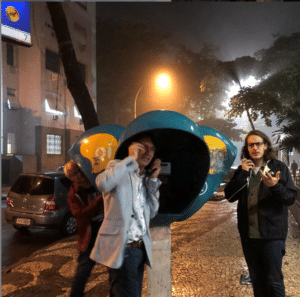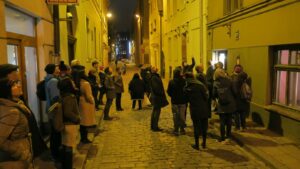Join JPI UE
Faq
FAQ
Please click here for the frequently asked questions we collected.
If you have an additional questions you are welcome to mail us at info@jpi-urbaneurope.eu
Hello Johannes! What is ”stakeholder involvement” and why is it important to JPI Urban Europe?
– Urbanisation is complex, we know that, it is a wicked topic with a high degree of interlinkages and dependencies. Because of this complexity, it is insufficient to take out a specific issue, topic and perspective in an attempt to address it with disciplinary blinders on.
In that sense, bringing together people and organisations with different viewpoints, perspectives and knowledges on urban matters is important to reflect this complexity. This is the main aim of AGORA – JPI Urban Europe’s Stakeholder Involvement Platform: facilitating exchanges across disciplines, working cultures, geographies, etc. to exchange, combine and co-create knowledges.
We use the results of the workshops and events that we organize for our strategic development, eg. designing topics for future calls, thematic orientation of our programme and assessing what additional activities are required to make a difference for urban transitions. AGORA, together with our funded projects, builds a community of people who are passionate about transforming their cities, neighbourhoods and streets towards a more sustainable and livable future. It is truly rewarding to witness the energy, ideas and perspectives from the swap of experiences and knowledge in our events. These ideas and transition pathways would most likely not have come around if it weren’t for the exchange across silos, disciplines and backgrounds.

What drives you or motivates you in this journey?
– One exciting part of my job is the constant learning, and to translate ideas, knowledge and experiences into strategic intelligence for JPI Urban Europe and the new partnership. In other words, getting ‘street wisdom’ reflected upon a European research- and innovation programme. Facilitating exchange across scales, geographies and disciplines and translating people’s knowledge(s) and experiences into European ambitions is a very exciting part of this job.
Where do you see (and wish) things are going with regards to Urban Europe and the coming years?
– Throughout 2020, we managed an extensive process to engage urban actors in the co-design of the Driving Urban Transitions partnership. Despite the restrictions for physical meetings, we organsied a series of online workshops, focus group meetings and consultations that helped us develop a programme.
Engaging stakeholders will probably be even more important in the Driving Urban Transitions partnership, a programme under Horizon Europe that we are currently designing. Having the community exchange on the needs for research and innovation as well as distributing information on what worked and what might not (information generation by our projects) is an crucial part to develop urban transitions pathways. I look forward to this!
I look forward to organizing on-site workshops again! I can’t wait for more site visits, to experience urban life of a host city, and having those coffee break chats with our community. Much work can be done fully online, but when discussing urban matters, it is difficult to get the full experience of a site or a case from the screen by your kitchen table.
What have you learned when it comes to mobilising the R&I community across such different contexts in joint programming?
– One central learning is that we need different formats to engage various stakeholder communities. The logics, for example, along which researchers work are substantially different to those of grassroot movements and local urban administrations. We need to provide appropriate formats and opportunities to facilitate exchanges among all actors. For certain groups, such as public urban administration or colleagues from widening countries, it is in many cases difficult to travel to events and workshop while it is part of the job description for researchers. In this case, the transition towards more online formats clearly helped to address these deficits.

We just launched a bunch of new projects in different calls. Have you spotted any personal favorite that you’d like to keep your eyes on?
– We have many very interesting running projects at the moment so it is very difficult to pick specific ones! I am very curious on the “TuneOurBlock – Transforming urban quarters to human scale environments“ project that has just been granted in the Urban Accessibility and Connectivity call. Another project I follow is the PlaceCity project that collects and implements placemaking tools. I am curious about how their results will be applied in Vienna and Oslo.
I also look forward to the projects funded in ERA-NET Cofund Urban Transformation Capacities. This call marks the completion of the call agenda of the first SRIA (1.0) and we organised many exchanges and dialogues that helped develop the call. It is usually very satisfying to see what projects come out of a call you worked with from the very beginning.
>> To the AGORA, JPI Urban Europe’s Stakeholder Involvement Platform